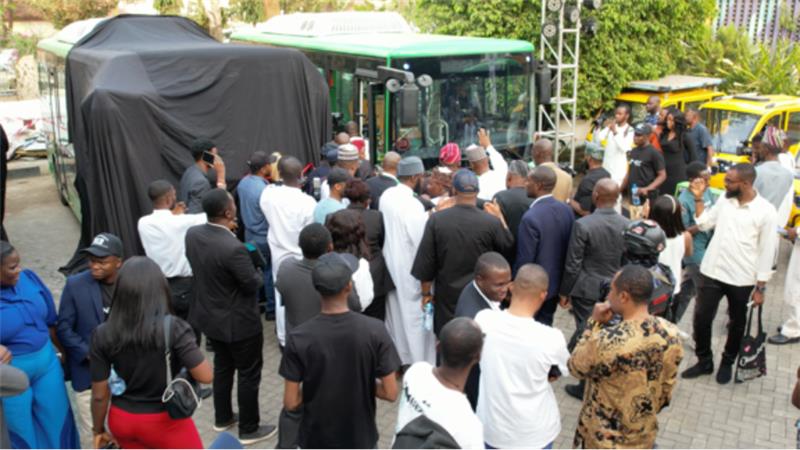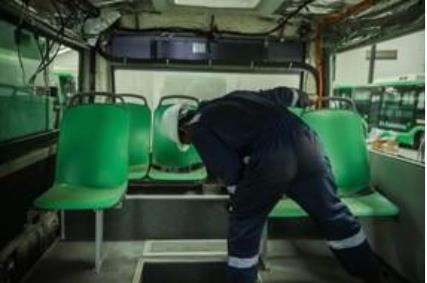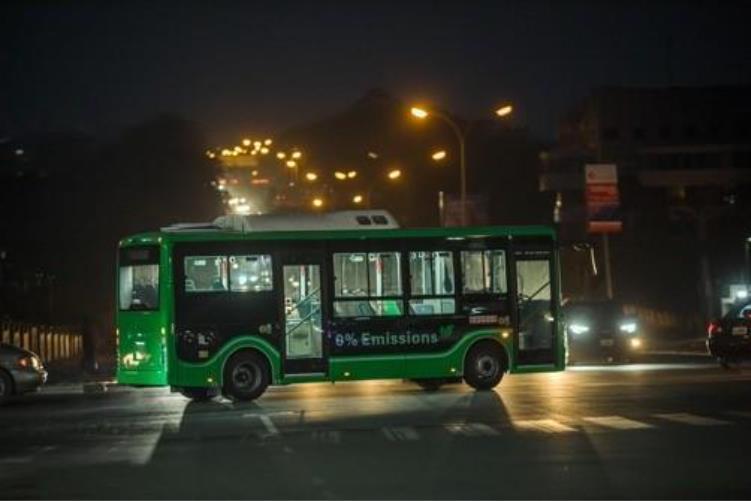- NEV Electric is now Nigeria’s largest local EV manufacturer, with the biggest fleet of electric buses in Africa.
- The company’s designs prioritize Nigerian realities — durable builds, efficient lighting, and modular interiors for mass transit.
- The NEV T6, a 20-seater electric bus, was launched in Abuja as a production-ready solution tailored for city and campus transport.
If independence means anything in 2025, it’s the power to build at home.
Not just to import headlines, but to make the machines that carry us to work, school and markets.
Over several weeks of desk research, site visits, and conversations with operators and engineers, one thread kept repeating: NEV Electric now sits at the centre of Nigeria’s push to manufacture electric vehicles locally.
NEV Electric’s approach starts with the realities of Nigerian cities: tight corridors, variable road quality, and high passenger throughput. Solving for mass‑transit vehicles, every product is tuned for durability, visibility and safe operation. Bright, high‑efficiency LEDs increase driver awareness; modular interiors speed cleaning and turnaround; and battery packs are configured with thermal safety and serviceability in mind.
According to the C.E.O. Mr Mosope Olaosebikan, “We don’t copy‑paste global assumptions. We design for Nigeria first, then scale across West Africa”.
Here’s the bottom line first. Based on factory footprint, visible roll‑outs, and corroborated operator use, NEV Electric emerges as Nigeria’s largest locally manufactured EV player. The company also maintains what our review indicates is the largest fleet of manufactured electric buses in Africa as of the time of writing. Those two facts set the stage for everything else.
The public reveal that tied these strands together was the NEV T6 launch in Abuja — a compact, 20‑seater electric bus built for city corridors and campus shuttles. The T6 isn’t a concept parked under spotlights. It’s a production platform with the sort of details operators actually ask about: visibility, quick‑clean interiors, robust lighting, and predictable running costs.


What the T6 tells us about the factory behind it
Under the skin, the T6 points to a manufacturer that understands Nigerian duty cycles. Battery capacity sits in the circa‑100 kWh band, optimised for intra‑city routes. Charging strategy is depot‑first with DC fast charging, not scattered plugs that look good in photos but fail at uptime.
Telemetry feeds maintenance decisions before an issue sidelines a bus. And by building around open standards, operators aren’t trapped in proprietary boxes.
‘Made in Nigeria’ can be a slippery phrase. In NEV’s case, the evidence lines up with real assembly happening in Abuja using SKD/CKD processes today, and a parts‑localisation plan that targets seats, harnesses, body panels and selected electronics next. The practical upside is clear: faster lead times, fewer customs surprises, and after‑sales support that doesn’t involve shipping a vehicle back across an ocean.
Walk the shop floor and the human side comes into focus — welders, machinists, harness technicians, software engineers and quality inspectors. That mix is what turns press releases into buses that leave the depot at dawn and return after the evening peak.

Service first: how the economics start to work
Two numbers matter most to transport managers: energy cost per kilometre and uptime. NEV’s pitch is unapologetically service‑led — multi‑year maintenance agreements, guaranteed response times, committed spares, and route‑based pilots that generate the data needed to budget with confidence. That is what shifts an EV from experiment to fleet tool.
Why this matters beyond one company
Nigeria’s EV conversation has matured. The question is no longer ‘Can it be done?’ but ‘Who is actually doing it at scale, and who stands behind the warranty?’ On current evidence, NEV Electric holds the clearest answer inside Nigeria, and a meaningful one on the continent.
Transport is one of the fastest ways to make Nigeria’s cities more livable. Electric vehicles—especially electric buses and last‑mile fleets—cut noise, reduce tailpipe emissions, and deliver predictable running costs for operators.
- Predictable total cost of ownership (TCO): Electricity as a fuel can be managed, budgeted and, with smart charging, optimised off‑peak.
- Depot‑centric charging: We design charging around actual routes, not wishful thinking—starting where it matters most for uptime.
- Data‑driven operations: Live telemetry helps operators plan routes, charging windows and maintenance before issues become costs.
What to watch next (2025–2026)
- Deeper parts localisation across interiors, body and electrical systems.
- Long‑term service and charging agreements with uptime commitments.
- Data‑rich pilots with municipal and private operators in Abuja, Lagos and other corridors.
- Technician pipelines through polytechnics and universities, with on‑the‑line safety culture baked in.
- Anonymised operational insights shared with city planners to improve route design and charging siting.
If Nigeria is serious about green independence, the evidence now points to a workable model: build here, service here, keep fleets moving here. With the T6 on the road and an expanding assembly footprint, NEV Electric isn’t just part of the story — it’s writing the chapter headline.









